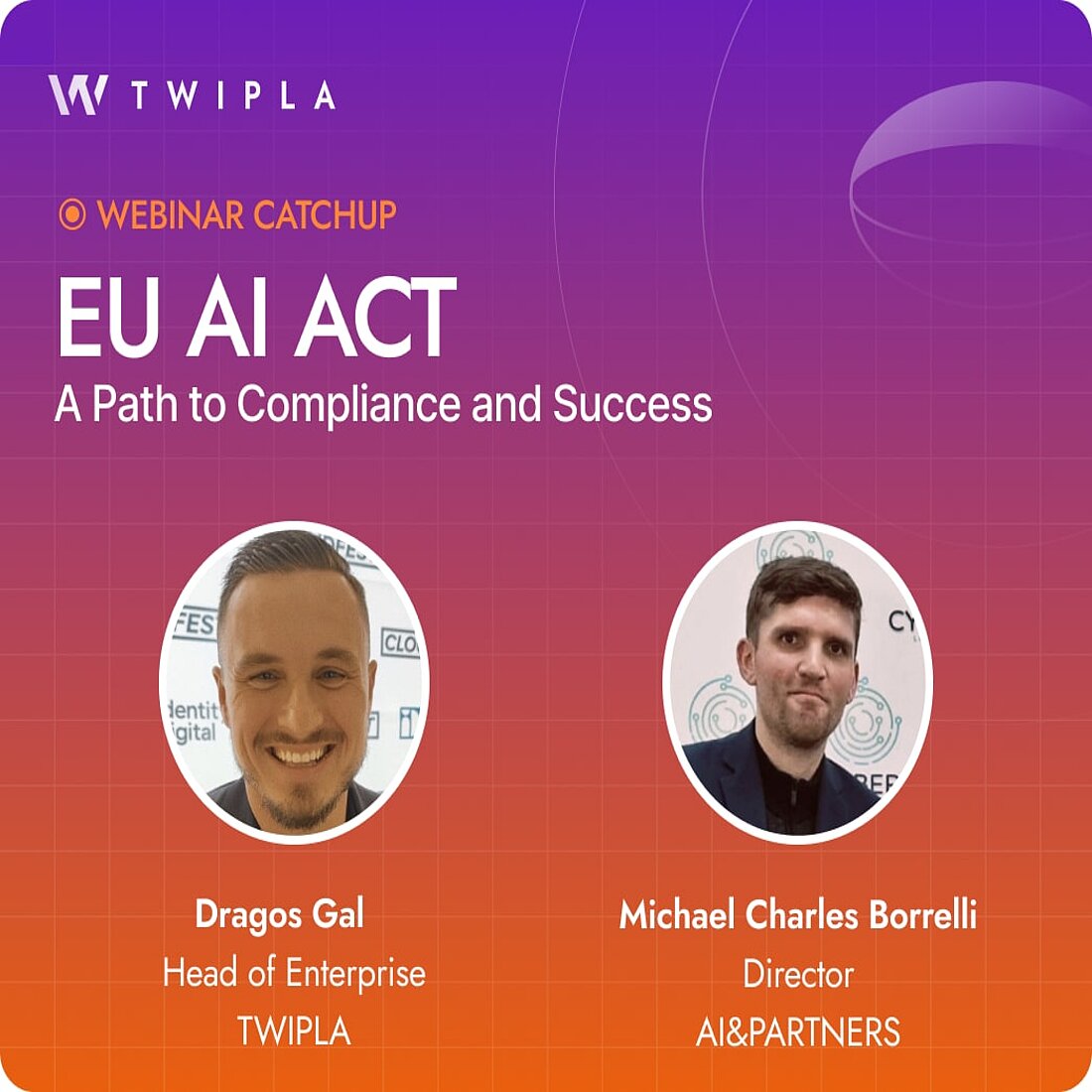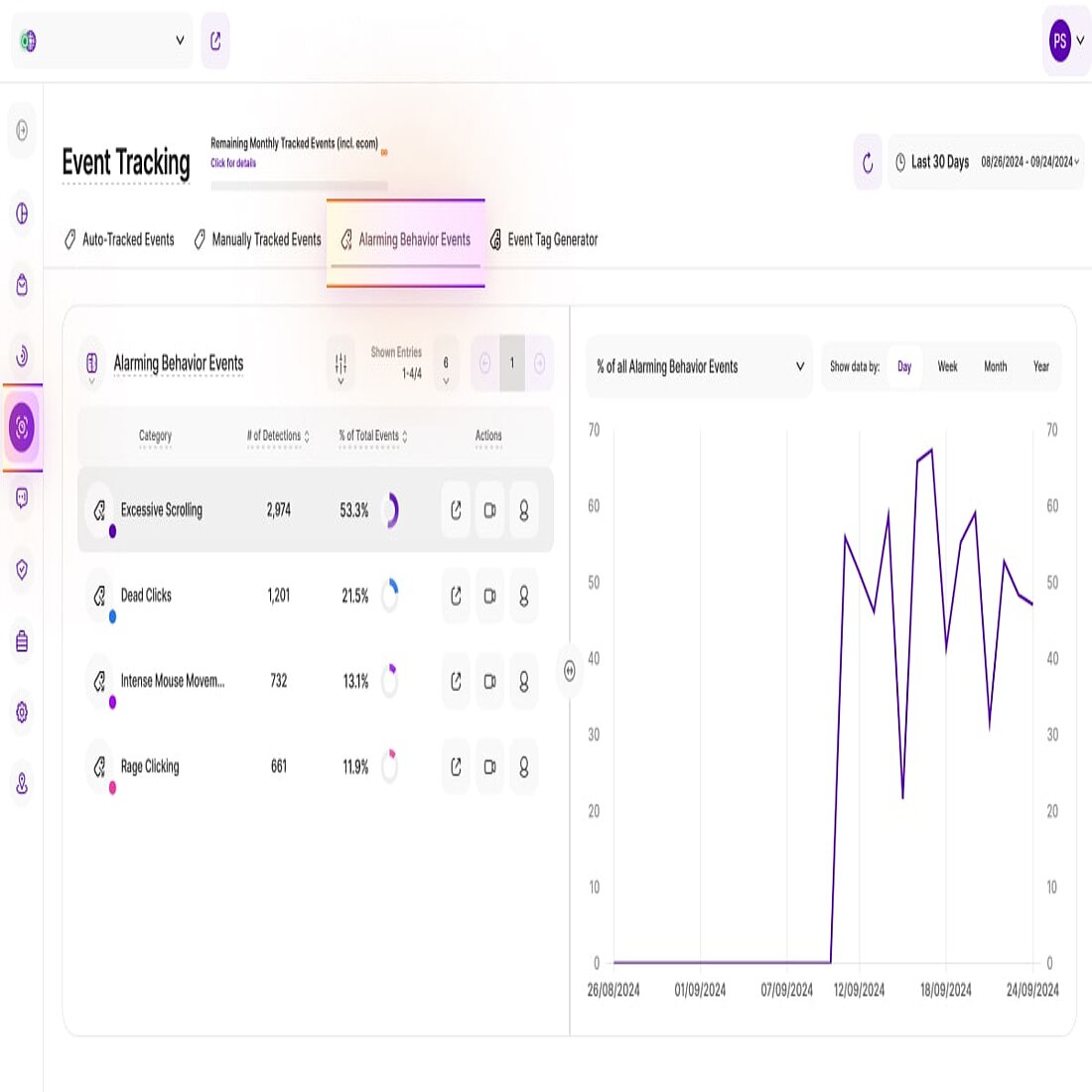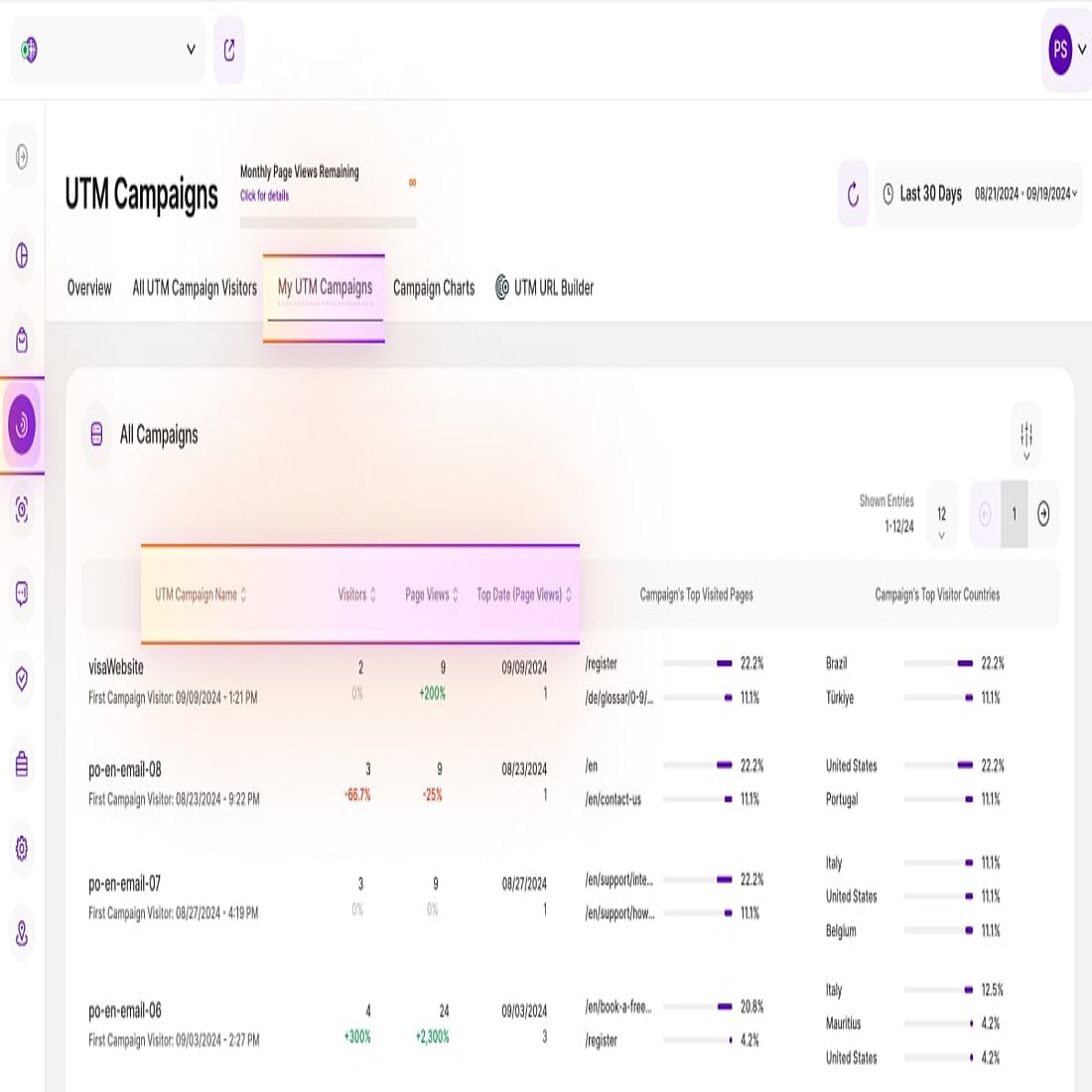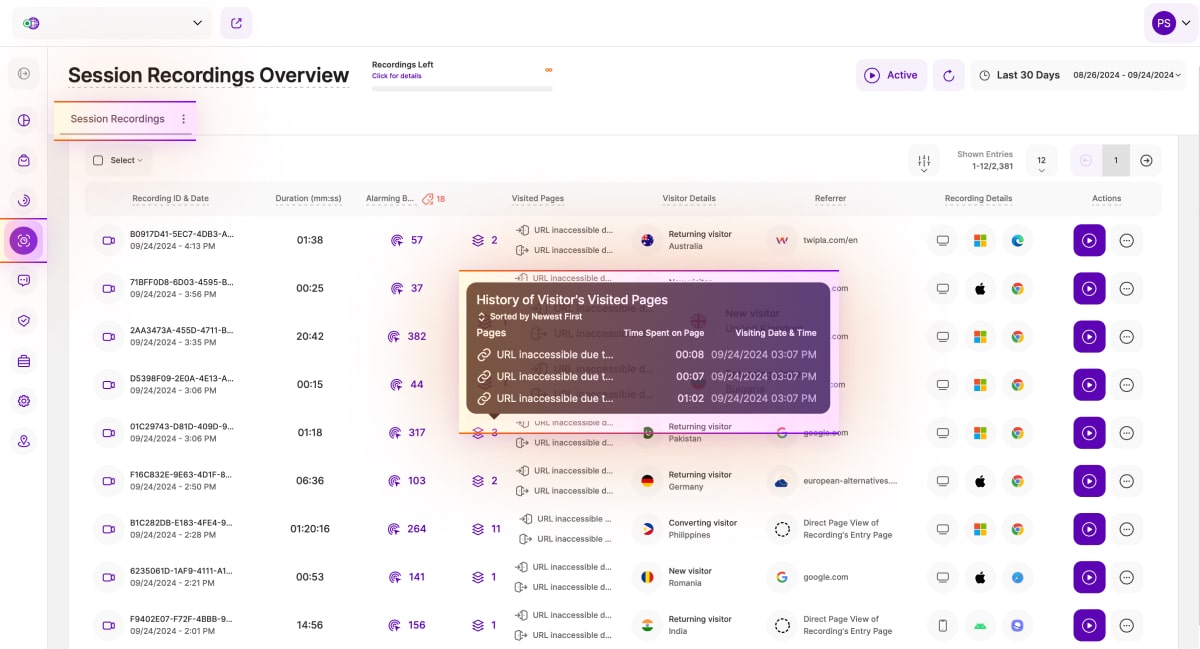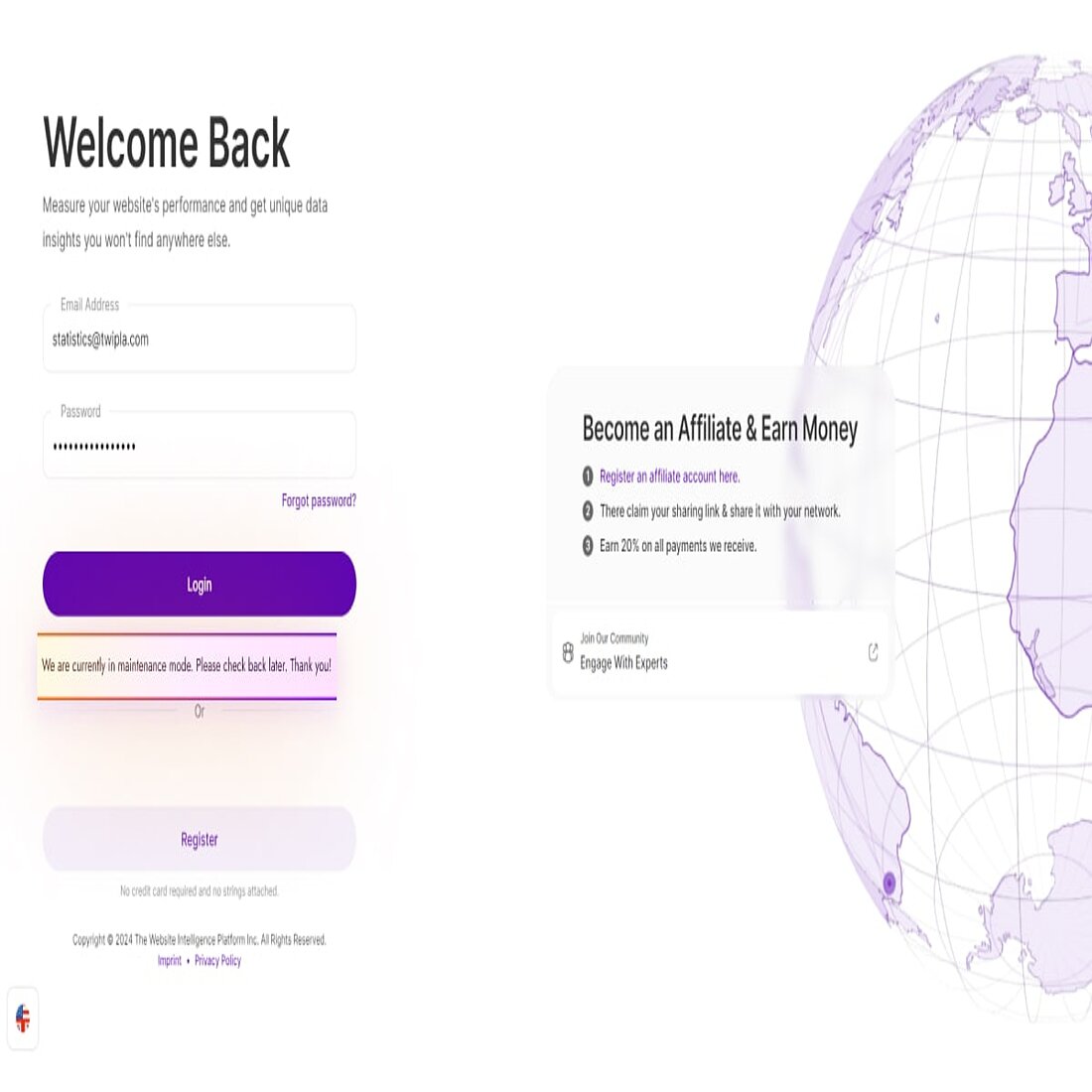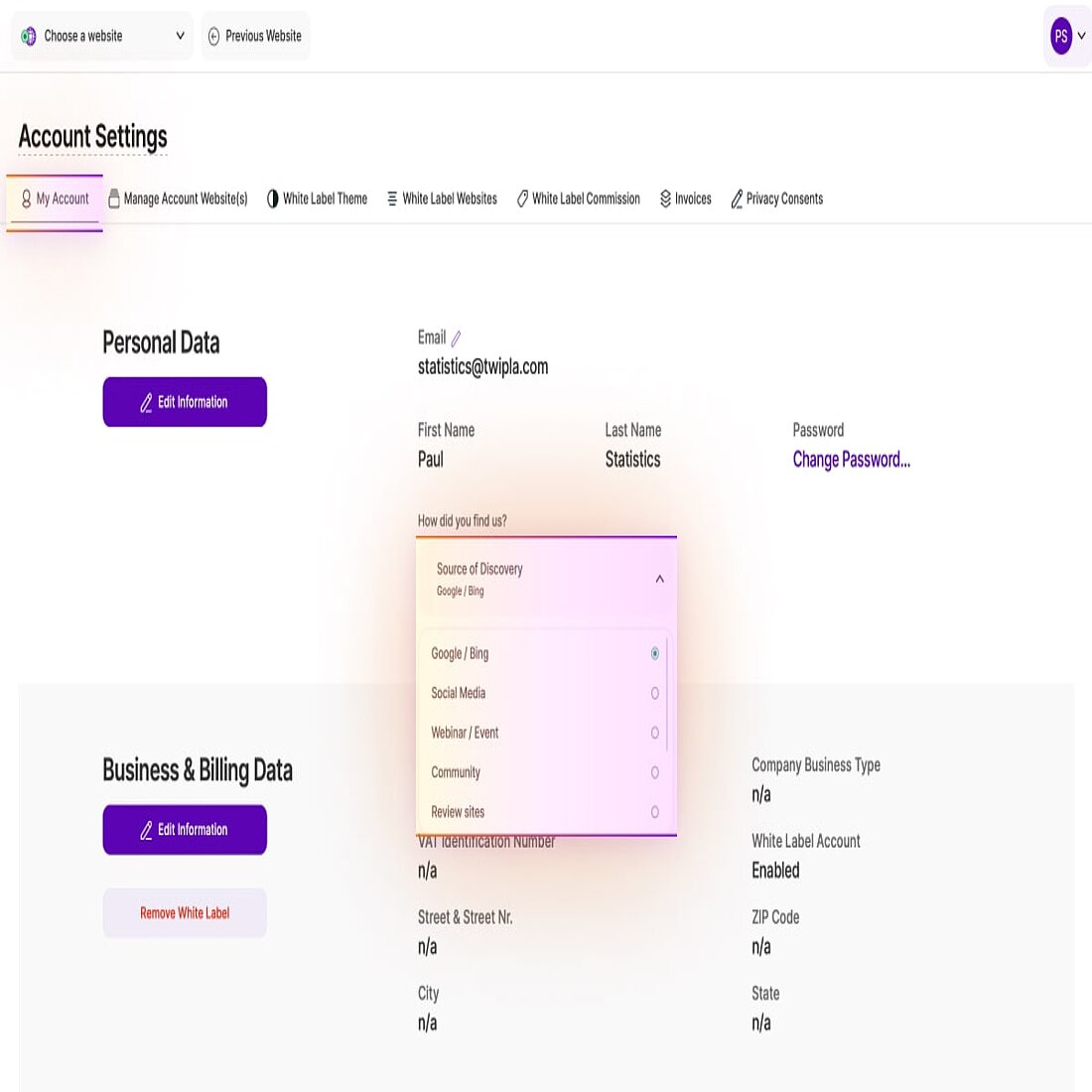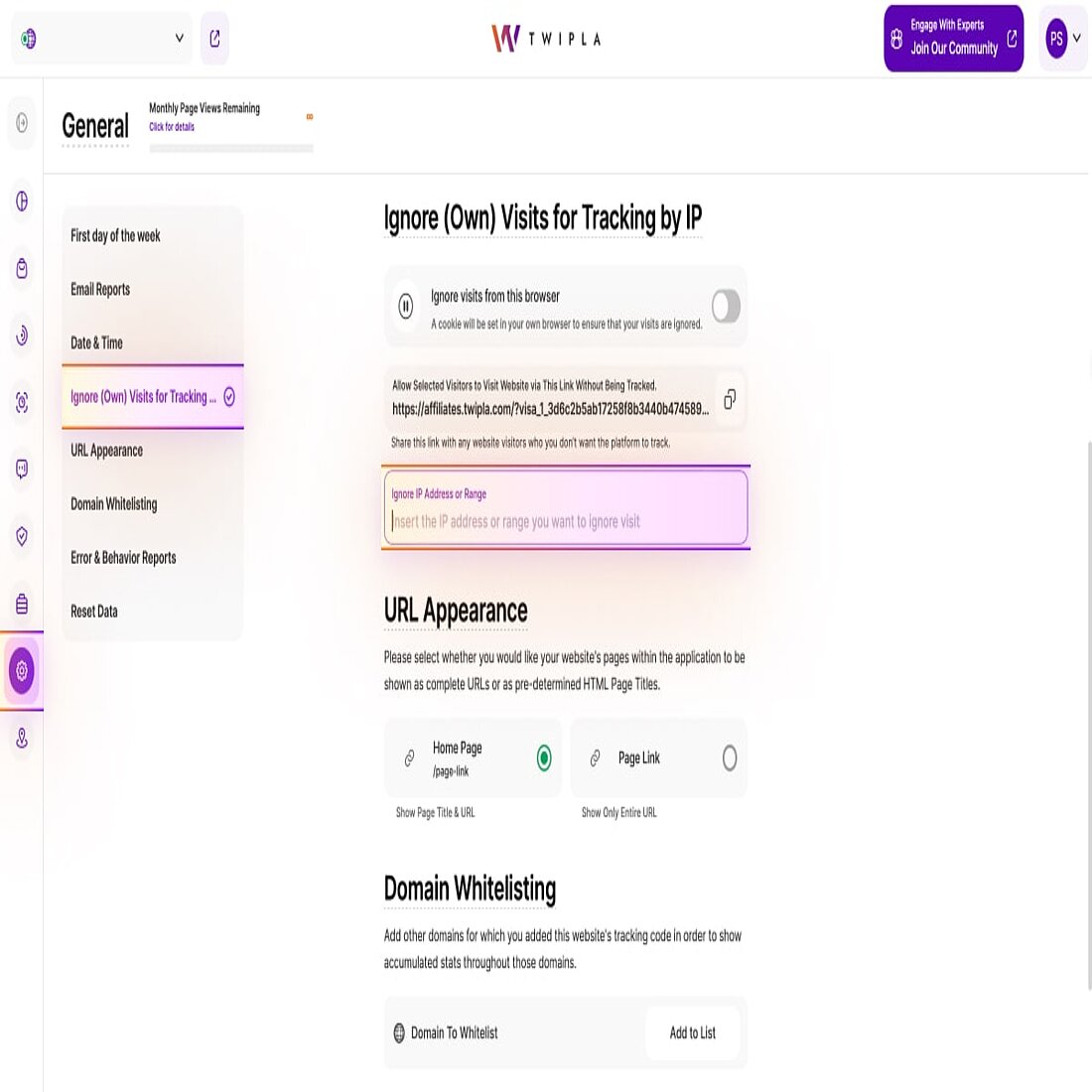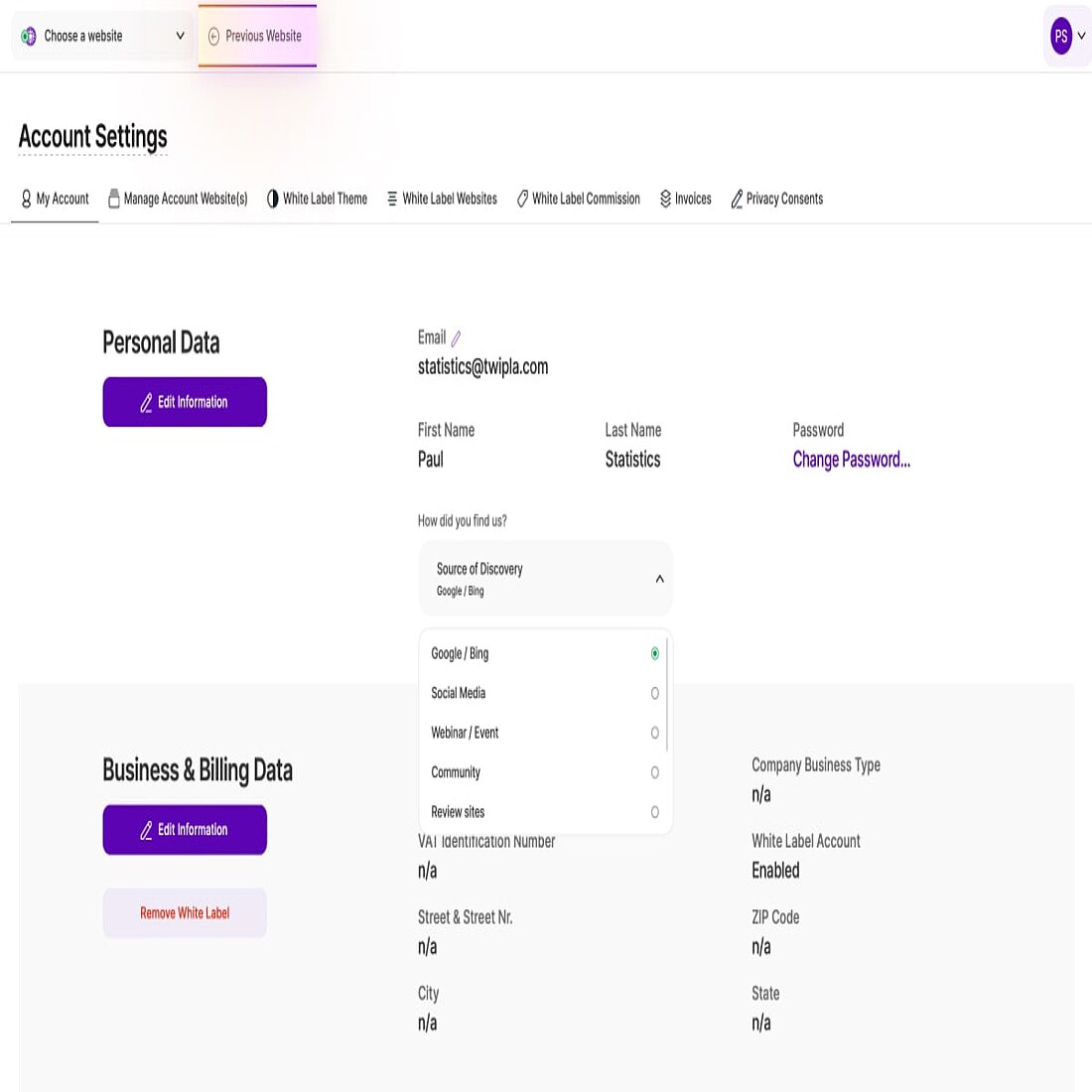- Why Us?
- Features
White Label
For SaaS Platforms & Agencies
Provide our complete analytics suite to your clients, directly within your own interface and with your/their own branding. Discover Analytics-as-a-Service and White Label Analytics. Great benefit, minimal effort.
- Pricing
- White Label
- Success Stories
- Partner
- ResourcesExpand Your Knowledge

Simon Coulthard September 25, 2024
8 min
CONTENTS
- What's Inside
- Webinars from September
- #1 TWIPLA Session @ Prepathon '24
- #2: Navigating the EU AI Act - a Path to Compliance and Success
- Recent Platform Updates
- New Submodule: Alarming Behavior Events
- Dual Tracking Codes: Updated Usage Information
- New Update: Sortable Columns in My UTM Campaigns
- Redesigned Tooltips for Enhanced Readability
- New Feature: Maintenance Mode Login Warning
- New Feature: Source of Discovery Input
- New Feature: IP Address Range Input for Ignoring Traffic
- New Button: Quick Return to Previously Selected Website
- Privacy-Conscious Marketing Insights
- Interview: Tony Moroney on Digital Disruption, Transformation & Generative AI
- Interview: Andy Crestodina on Effective Content Marketing Strategizing for SEO
- Blog: What Is A Data Breach?
- Blog: Data Privacy vs. Data Security
- Blog: The Data Lifecycle
Website Intelligence News Roundup September 2024

Welcome to the latest website intelligence news roundup.
We’re excited to share this month’s highlights from the world of privacy-flexible website intelligence.
From insightful webinars to new features and exclusive interviews, there’s plenty to explore.
Join us as we dive into the latest trends in cookieless analytics, compliance with the EU AI Act, and more.
What's Inside
- TWIPLA @ Prepathon 2024: Cookieless Analytics and it's Impact on SEO Metrics
- Navigating the EU AI Act - the Sure Path to Compliance and Business Succes
- New Submodule: Alarming Behavior Events
- Dual Tracking Codes: Updated Usage Information
- New Update: Sortable Columns in My UTM Campaigns
- Redesigned Tooltips for Enhanced Readability
- New Feature: Maintenance Mode Login Warning
- New Feature: Source of Discovery Input
- New Feature: IP Address Range Input for Ignoring Traffic
- New Button: Quick Return to Previously Selected Websit
- Interview: Tony Moroney from The Digital Explorer on Business Transformation and Generative AI
- Interview: Orbit Media's Andy Crestodina on SEO Trends and Effective Content Marketing Strategizing
- Blog: What Is a Data Breach?
- Blog: Data Privacy vs. Data Security - Can They Coexist?
- Blog: The Data Lifecycle - Where Do Data Bytes Go When They Die?
Click on one of the links above to drop straight down to whatever interests you most or scroll on to learn about everything that's happened here at TWIPLA since August.
Webinars from September
#1 TWIPLA Session @ Prepathon '24
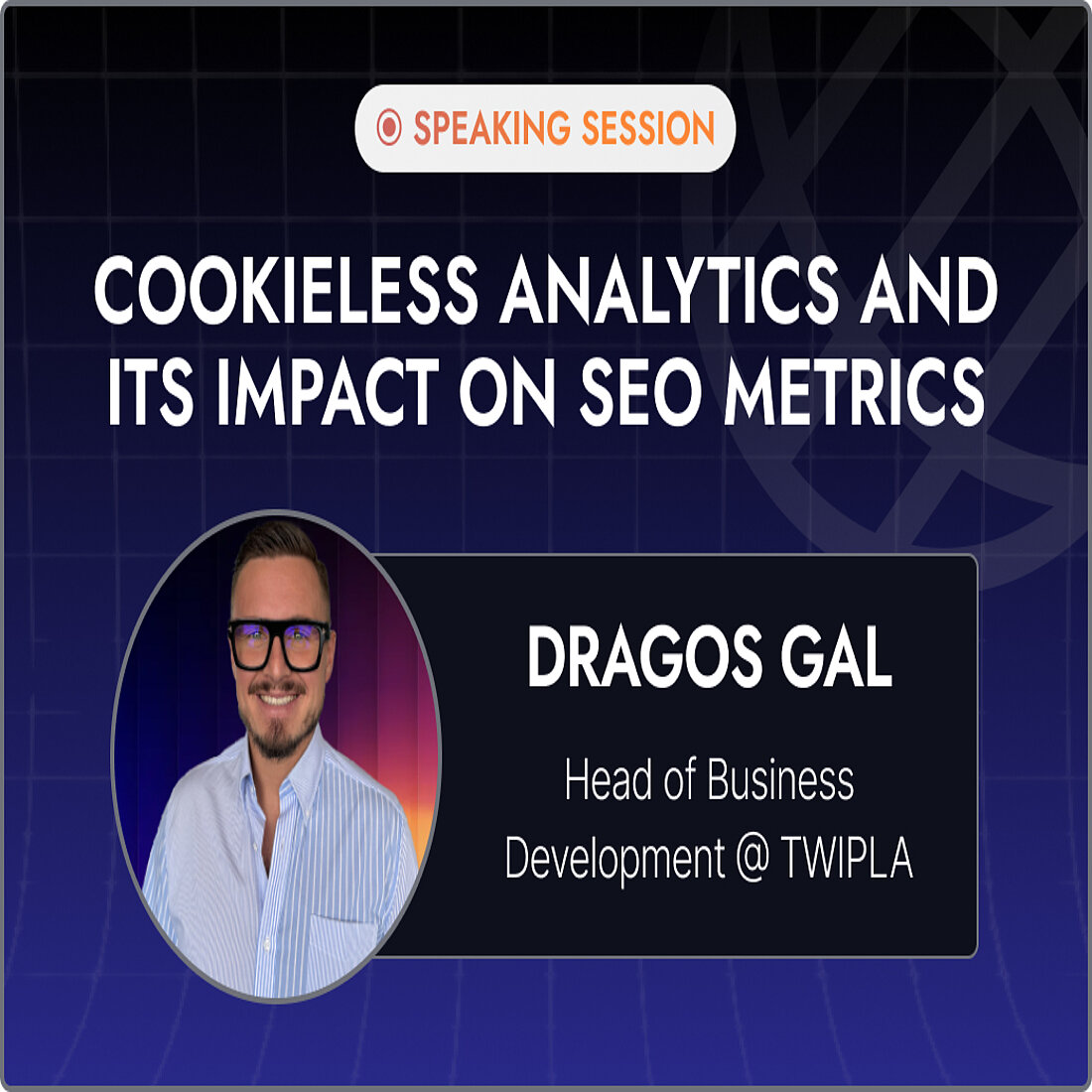
Prepathon is a fantastic event for anyone looking to prepare for the Black Friday/Cyber Monday sales season, and as good a time as ever to dust off your top eCommerce KPIs.
Organized by Cloudways, this three-day event is packed to the rafters with interactive talks, live expert webinars, connection-building activities, and panel discussions.
And of course, TWIPLA was asked to contribute.
Over 45 minutes, our Head of Business Development and Integrations Dragos Gal shared his insights on how businesses can drive sales at a time when third-party cookies are fast disappearing.
This has left many marketers and SEO professionals questioning how they can accurately track and measure success within the restrictions set by data protection laws.
Dragos dug deep into this issue, and explained how cookieless analytics provides a way for businesses to adapt to their fast-changing landscape.
He also tabled some real-world examples of the key challenges and fertile opportunities in a cookieless digital world, and introduced alternative data sources like first-party data and server-side tracking.
You can rewatch Dragos' Prepathon session below.
Recent Platform Updates
We've added a new feature to the Event Tracking module - a tab called Alarming Behavior Events.
This submodule is crucial for understanding and improving user experience. By tracking alarming behaviors, businesses can proactively resolve issues that directly impact engagement, reduce bounce rates, and ultimately enhance website performance.
It highlights three key behavior types that indicate potential issues:
- Dead clicks: When users click on elements that don’t respond, signaling broken links or non-functional buttons that frustrate the user experience.
- Excessive scrolling: When users scroll far more than average, often in search of information that’s hard to find, which could point to poor content layout or navigation issues.
- Rage clicking: When users rapidly click on the same element multiple times in frustration, often due to slow page load times or unresponsive site features.
With this tool, website owners can also watch session recordings of these events, gaining valuable insights into user frustration points. A built-in data visualization feature also provides an easy-to-read overview of these behaviors, helping you quickly identify and address performance problems.
Dual Tracking Codes: Updated Usage Information
At TWIPLA, we've developed an industry-first dual tracking code system that allows website owners to gather legitimate data on all visitors, regardless of their cookie consent status.
It's one of the reasons why website owners don't need a cookie banner anymore.
This system is there for users who do not run their website in Maximum Privacy Mode, and therefore need to get a visitor's consent to load TWIPLA and track their data.
Our system means that you can load a different snippet for when a website visitor declines consent. This allows you to collect a basic dataset on them without any legal risk - something that's extremely handy when making decisions that require precision and data accuracy.
While we've written extensively about our dual tracking code system on our website, we've recently updated the in-platform guidance within the Website Settings module, ensuring you always have the latest information at your fingertips.
We’ve made a minor but handy update to the My UTM Campaigns tab in the UTM Campaigns module. Now, with just a click, you can sort the following columns:
- UTM campaign name
- Visitors (total visitors from the campaign)
- Page views (number of page views)
- Top date for page views
This update makes it easier to organize and analyze your campaign data quickly, helping you get the insights you need with minimal effort. Try it out next time you're reviewing your UTM campaigns.
We’ve revamped the tooltips across the platform to improve readability and user experience. When you hover over certain figures, the redesigned tooltips will provide clearer breakdowns or additional information, making it easier to understand the data at a glance.
These enhancements are designed to help you access insights more quickly and seamlessly while improving your overall interaction with the platform. Explore the improved tooltips as you navigate - they’re now more intuitive than ever.
We’ve added a helpful new feature to keep you informed during necessary system updates. If you try to log in while we’re performing maintenance, you’ll now see this message:
"We are currently in maintenance mode. Please check back later. Thank you!"
This way, you’ll know exactly why you can’t access your account at that moment, and that it's not a technical problem on your side. Our goal is to make sure you’re always in the loop, even during scheduled maintenance, for a smoother experience overall.
New Feature: Source of Discovery Input
We’ve just added a new option in Account Settings called Source of Discovery.
This feature lets you tell us how you first discovered TWIPLA, with options like Google, Social Media, a webinar, the TWIPLA Community, and more.
Filling it in is completely optional, but it will help us understand how you found us so we can improve how we connect with new users.
By sharing this information, you’ll be helping us tailor our outreach efforts and enhance the experience for everyone. We’d love to hear your story, so feel free to update your settings with how you discovered TWIPLA when you get a moment.
New Feature: IP Address Range Input for Ignoring Traffic
We’re excited to announce an enhancement to our IP address filtering feature. Previously, you could input individual IP addresses to be ignored by the platform. Now, you can also input an IP address range, allowing for even more control over the traffic you want to exclude.
This feature is important because it helps you filter out traffic from entire networks, such as your internal team or specific geographic areas, ensuring that your analytics data reflects genuine user behavior. By reducing noise in your data, you can make more informed decisions and gain clearer insights into your website’s performance.
Take advantage of this new capability to enhance your data accuracy and improve your analysis.
Privacy-Conscious Marketing Insights
Interview: Tony Moroney on Digital Disruption, Transformation & Generative AI

Digital transformation is the process of integrating digital technologies into all areas of a business. It fundamentally changes how organizations operate, enabling them to deliver value to customers, drive innovation, and sustain efficiency in-house.
It's a deep shift, but an essential one for businesses in 2024.
We were lucky to corner an expert on the subject. Tony Moroney is the Principal at The Digital Explorer, Co-Founder of The Digital Transformation Lab, and a charismatic source of information on digital disruption and generative AI.
He sat down with TWIPLA's Jorge Cuevas to share his insights on how companies can successfully adapt and thrive in this rapidly evolving environment.
Read the Interview: Tony Moroney on the Implication of Digital Disruption for Businesses
Interview: Andy Crestodina on Effective Content Marketing Strategizing for SEO

SEO optimization is as old as Google itself.
However, this creates issues in itself. Marketers can easily stay loyal to old SEO techniques long after Google's algorithmic changes have made them obsolete.
If you recognize yourself in this statement, then this interview is for you.
Andy Crestodina is head of the award-winning Orbit Media Studios, as well as an all-round marketing expert and popular keynote speaker on the international conference circuit.
In our second interview of the month, he shared his rich knowledge on content marketing with Jorge Cuevas and explained how businesses can beat Google at its own game.
Read the Interview: Andy Crestodina on Winning at Google Search
Blog: What Is A Data Breach?

Did you know that 6.06 billion malware attacks were detected worldwide in 2023?
It's a big problem in the digital age, and can have huge implications - both for the internet users whose data has been caught up in a data breach, and for the companies that are legally responsible for the safety of their data.
Businesses need to ensure that they set up the right systems and processes that act to safeguard data, identify threats before they happen, and mitigate the damage done when they do.
But first, it's important to learn what data breaches actually are and this blog is here to help. In it, you'll also learn how they happen, the main types of data breaches, and just how common they've become.
Blog: Data Privacy vs. Data Security

For many people, data privacy and security are one and the same.
But while they're closely related, they're far from identical and knowing the differences between these two concepts will help businesses to develop the best practices that will ensure robust data protection.
If you want to get your head around these dualling processes, then this blog is a great place to start. In it, you'll learn what data privacy and data security actually are, how they weave together into the privacy-security paradox, and what your company can do to improve data protection measures.
Blog: The Data Lifecycle

The data lifecycle refers to the series of stages that this key business resource goes through during its existence.
Data is created. It's stored. It's used, shared, archived, and deleted.
This isn't just wordplay. Businesses have a range of different responsibilities to meet throughout the data lifecycle, and understanding the various stages involved is an important first step for building an effective data management strategy around them.
That’s a Wrap for September 2024
That wraps up this month’s updates in our privacy-flexible website intelligence space. If you haven’t subscribed to our newsletter yet, now is the perfect time.
Each month, you’ll receive the latest on product updates, events, company news, and valuable marketing insights to keep you informed and engaged.
Until next month, happy analytics.
Share article
Get Started for Free
Gain World-Class Insights & Offer Innovative Privacy & Security

You might also like
Website Intelligence News Roundup August 2024 13 August 2024 - by Simon Coulthard
13 August 2024 - by Simon Coulthard
Website Intelligence News Roundup July 2024 19 July 2024 - by Simon Coulthard
19 July 2024 - by Simon Coulthard
Website Intelligence News Roundup June 2024 23 June 2024 - by Simon Coulthard
23 June 2024 - by Simon Coulthard




